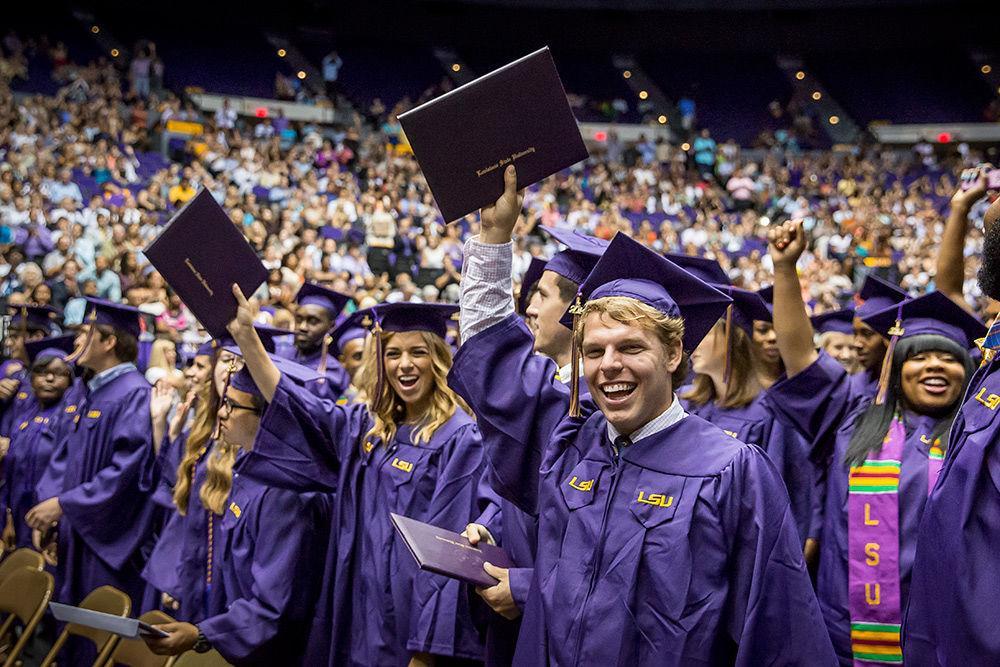On Oct. 23, the University sent out an email announcing its decision to not hold an in-person commencement for Fall 2020 graduates.
The student backlash was fiery — and rightfully so.
Many pointed out the administration’s brazen hypocrisy in regularly allowing 25,000 attendees to enter Tiger Stadium but refusing to entertain much smaller ceremonies for graduating students.
In its email, the University claimed to have made the decision at the recommendations of public health officials. But how could crowded sports events possibly clear those guidelines if something like a commencement ceremony could not?
The reasoning seemed rather clear: football brings the University money and graduation commencements do not.
2020 graduates, along with their fellow Tigers, took to social media to voice disappointment with the University’s decision. Students felt disregarded by the institution at which they had spent years working for their diploma. A petition began to circulate and amassed almost 2,500 signatures.
Just a few hours after the initial email, the University released a follow-up to inform students “we have heard you loud and clear” and announce that the decision to forego in-person commencement was being reconsidered.
Two weeks later, the University officially announced its reversal of its original decision in an email that read, “In light of the overwhelming feedback we have received in support of an in-person December commencement ceremony, we are pleased to announce that we will offer an in-person ceremony after all, for those who choose to participate.”
This is a win for 2020 graduates, but it also tells us something bigger about our power as students:
An informed, active student body is the greatest tool we have to hold the University accountable for its mistakes and shortcomings.
Student leaders in and out of Student Government have been using their voices to improve our community.
Take the recent example of the advocacy by Black student leaders that led to the renaming of Middleton Library. Their efforts catalyzed an important and much-needed change on campus.
Our school is at its best when students use their voices to make progress. And, now especially, we need to remember that.
In this unprecedented era in American life, students have been forced to navigate a pandemic on top of an economic crisis on top of a tumultuous political climate. At the same time, the University battles persistent problems plaguing other college campuses across the nation like racism, student loan debt, rape culture and more.
Whether it be the University’s abhorrent use of prison labor, its shortcomings around the coronavirus response or its negligence towards adequately addressing Greek life hazing culture, it is clear there is still much work to be done on campus.
It falls on us to do that work when the administration won’t. This most recent display of student influence reminds us that we’re more than capable of picking up the slack.
Claire Sullivan is an 18-year-old coastal environmental science freshman from Southbury, CT.







